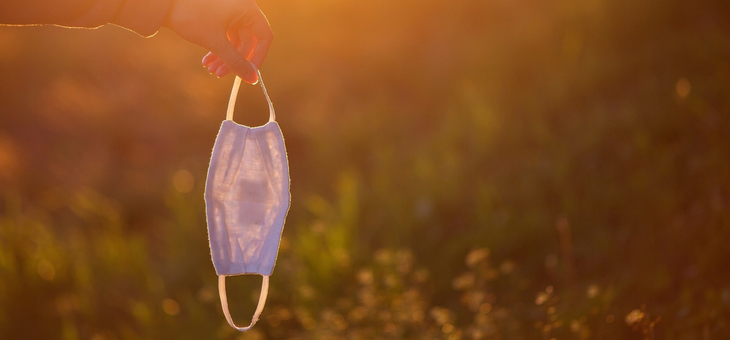Experts are warning that even if a vaccine for COVID-19 is developed, we will be living with the disease for a long time.
“Even with universal vaccination, the disease itself is not likely to be beaten, at least not yet,” Dr Samar Ojaimi, infectious diseases specialist at Monash Health, and Professor Eric Morand, head of the school of clinical sciences at Monash Health, told Nine media.
The say “it will probably be years before … a return to what we hope will be a new normal more like the old.
“SARS-CoV-2, the virus that causes COVID-19, has proven an indefatigable foe, and the reality is that the new normal will be accompanied by a spectrum of associated symptoms in thousands, even millions.”
Former UK chief scientific adviser Professor Mark Walport says coronavirus will be around “forever” and people are likely to need regular vaccinations against it, The Guardian reports.
Prof. Walport, a member of the Scientific Advisory Group for Emergencies (Sage) said repeat inoculations on a global scale would almost certainly be required to control it.
He told the BBC that coronavirus was not “going to be a disease like smallpox, which could be eradicated by vaccination”.
“This is a virus that is going to be with us forever in some form or another and almost certainly will require repeated vaccinations,” he said. “So, a bit like flu, people will need re-vaccination at regular intervals.”
He is worried about the resurgence of the virus in South Korea, places that got it under control very quickly and are now seeing a rise in cases.
“It is this terrible balance between trying to minimise the harm to people from the infection while keeping society going,” he said. “People have argued very strongly that applying generic lockdowns isn’t the answer. Initially, it had to be the case, but now we can be a lot more targeted in the approach.”
The head of the World Health Organization, Tedros Adhanom Ghebreyesus, said on Friday that the disease could be reined in within two years, comparing the challenge to that of the Spanish influenza outbreak of the 1920s.
“We have a disadvantage of globalisation, closeness, connectedness, but an advantage of better technology, so we hope to finish this pandemic before less than two years,” he said.
“Of course, with more connectedness, the virus has a better chance of spreading. But, at the same time, we have also the technology to stop it, and the knowledge to stop it.”
Dr Ojaimi and Prof. Morand believe the challenge is difficult because the virus can cause a person’s immune system to “overreact in such a way that it becomes an enemy within”.
They explain that most severe COVID-19 symptoms involve “raging inflammation”, so much of the treatment focuses on immune-modulating drugs – and “finding ways to stop the immune system from hurting its own host – the patient – is a balancing act”.
“You can’t dampen down the immune system without making the patient vulnerable to further viral and bacterial infections.”
So, while drug trials are vital, they believe there is a need for more understanding of the disease’s effect “at the immune cell level”.
“Today, HIV has been effectively beaten 40 years after it first appeared — not with a vaccine but through development of targeted cocktails of drugs, all of which required a deep understanding of how and why that virus was so successful in infecting the immune system.
“Gloves, vaccines, safe distancing and lockdowns may be what we are focusing on now, but we shouldn’t lose sight that knowing the enemy, through basic research, is ultimately what will help us conquer this.”
A prominent Melbourne architect believes there will be significant short-term changes to our environment due to coronavirus. And some might be positive.
Zahava Elenberg told ABC radio on Monday that after spending so long “dismantling the idea of hierarchy” in workplaces, we should now embrace ways of “bringing people together while keeping them apart”. That means the return of the partition.
She says retail, office and retail and spaces will be transformed and this is “definitely the end of the hot (shared) desk”.
“I think it’s changed the way we see the domestic space as well.”
Ms Elenberg has devised a system, Clikclax, which uses colourful see-through Perspex shapes that slot together and can be easily flat-packed and mailed.
“Out of disaster should come joy,” she told The Australian, of the idea, which arose during Melbourne’s first lockdown.
“I knew we needed to bring people together and interact as humans again, but somehow keep us safely apart,” she explains, “something that was inspiring and didn’t completely shut down a space and add to the sense of isolation.
“It’s like desk jewellery,” she says. “It’s pretty and I hope it makes us feel good. Good ideas are born in a crisis.”
Ms Elenberg believes the pandemic has “huge implications” for design.
“For a start, we are more physically aware of one another. I’ve always been an avid believer in rooms. We lost rooms with the move towards open-plan living, we lost the idea of privacy and secrecy and sometimes it’s nice to be closed in, it’s comforting. I think maybe there’s an opportunity to rethink our sense of privacy and how we occupy space. We want more privacy, more intimacy around the way we live and work.
“COVID-19 has been a great leveller. People are much more flexible and dexterous in their thinking now, and that’s a good thing. Everyone is working from home, everyone has to communicate in the same way, it’s a lesson in democracy. And even if we snap back to our old lives, a residue of COVID will always exist.”
Can you see any positives arising from the pandemic?
If you enjoy our content, don’t keep it to yourself. Share our free eNews with your friends and encourage them to sign up.
Related articles:
https://www.yourlifechoices.com.au/health/covid19/410-species-at-risk-of-covid19
https://www.yourlifechoices.com.au/health/covid19/deal-ensures-covid-vaccine-free-for-all
https://www.yourlifechoices.com.au/health/covid19/inhaler-protects-against-covid19

